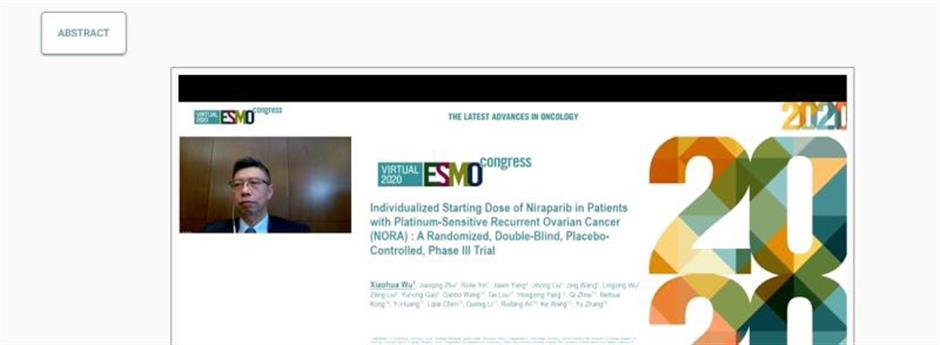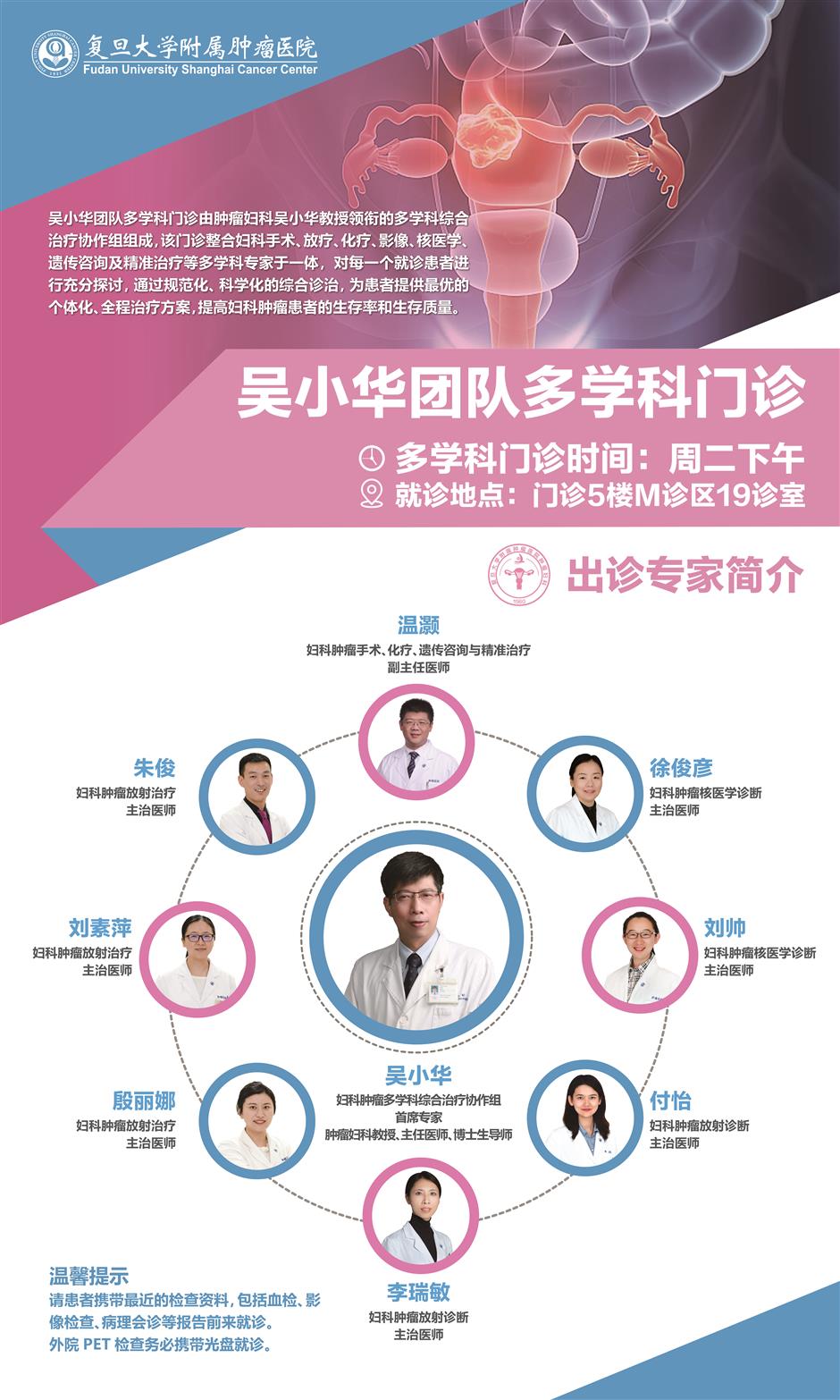
Dr Wu Xiaohuareleases his study on ovarian cancer treatment during the online meeting of the 2020 Congress of European Society for Medical Oncology.
A clinical trial led by local medical experts for patients with ovarian cancer relapse on a new medication hasproven effective, according to experts from the Shanghai Cancer Center.
The average survival rate for patients with the new medication is three times that of patients not receiving the therapy.
Dr Wu Xiaohua, a leading expert, shared the study with medical professionals through the online meeting of the 2020 Congress of European Society for Medical Oncology.
Ovarian cancer is the most fatal cancer in female reproductive systems. Though it is the No. 9 prevalent female cancer, its mortality is No. 1 as more than 70 percent of patients are diagnosed in the terminal stage.
“Ovarian cancer is called silent cancer as it is difficult for early screening and early detection," Wu said.
"There are fewer symptoms in the early stages and it develops quickly, so less than 40 percent of patients can survive for more than five years, and over 90 percent of patients have a relapse within five years after receiving surgery and chemotherapy."
The new therapy focuses on PARP inhibitor, which plays an indispensable role in DNA damage repair and has emerged as potent anticancer drug. However PARP research is mostly conducted in Western medical centers. There are very few similar studies conducted in China and there is no phase III clinical trial in the nation.
Wu’s team led some 30 medical facilities in China to initiate the nation’s first phase III double-blind clinical trial on PARP inhibitor and worked out the first Chinese guidance on PARP therapy for ovarian cancer.
A total of 265 patients were included in the trial since 2017. The average survival for patients with the new medication is 18.3 months, while it is 5.4 months for those not receiving PARP.
 Ti Gong
Ti GongWu Xiaohua and his team
